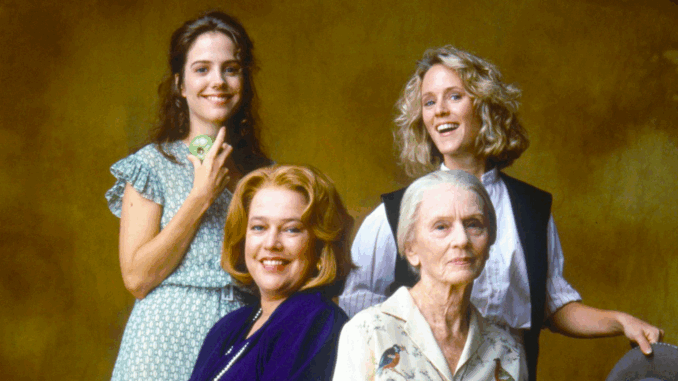
There are films that entertain, and then there are films that awaken something in your soul. Fried Green Tomatoes belongs to the latter. It is a film about memory, love, and resilience — but above all, it is about refusing to shrink.
What makes this story immortal is its dual narrative. The sepia-toned tale of Idgie and Ruth is one of courage, tenderness, and a love that dared not speak its name in its time. Their defiance is quiet, but unyielding — a love story carved into the very soil of Whistle Stop. Yet, it is the modern-day journey of Evelyn Couch that delivers the film’s most explosive power.

Evelyn is every woman who has been ignored, underestimated, or dismissed. Her transformation is not polished or polite; it is messy, chaotic, and ferocious. She swings between despair and exhilaration, from tears in a nursing home to howling laughter as she demolishes a car in righteous fury. Evelyn is not merely coping with change — she is declaring war on a culture that told her to disappear.
The phrase “Towanda!” has outlived the movie itself. It is a rallying cry, a battle hymn for women who have had enough. Kathy Bates infused Evelyn with a raw, electric energy that still vibrates decades later. Watching her is catharsis; it is permission to be bold, unruly, and unapologetically alive.
Fried Green Tomatoes is not just a Southern classic. It is a manifesto. It tells us that middle age is not the twilight of power but its awakening. And it dares every viewer — especially every woman — to embrace the Towanda within.
